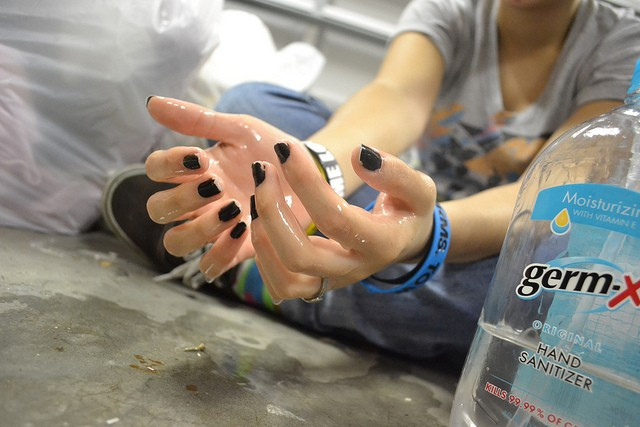Nation's Wealth Increases Risk of Alzheimer's 'Because of Better Hygiene'

People living in wealthy countries are more likely to develop Alzheimer's disease because of better hygiene levels, researchers have claimed.
According to a team of scientists at the University of Cambridge, there is a "very significant" relationship between a nation's wealth and rates of Alzheimer's.
They say high-income and highly industrialised countries exhibit far higher rates of the disease because the population is less exposed to a diverse range of bacteria, viruses and other microorganisms. That inhibits the body's immune system from developing properly, they said.
Molly Fox, lead author of the paper, said: "The hygiene hypothesis, which suggests a relationship between cleaner environments and a higher risk of certain allergies and auto-immune diseases, is well-established. We believe we can now add Alzheimer's to this list of diseases.
"There are important implications for forecasting future global disease burden, especially in developing countries as they increase sanitation."
Researchers used age-standardised rates - as if all countries had the same population, life expectancy and age structure - to look at instances of Alzheimer's in 192 countries.
They found that countries where people had access to clean drinking water, including the UK and France, had 9% higher Alzheimer's rates than countries where less than half the population has clean water, such as Kenya and Cambodia.
Switzerland and Iceland, which have low rates of infectious diseases, have 12% higher rates of Alzheimer's compared to countries with high rates of infectious disease.
Urbanisation also had an impact. Britain registered rates 10% higher than Bangladesh, where less than a a 10th of the population live in urban areas.
The study said that people in wealthy countries, which have easy access to antibiotics, sanitation, etc, are less exposed to the microorganisms present for "the majority of human history".

This can lead to insufficient development of the immune system, researchers say. A deficiency of the anti-inflammatory T-cells is commonly found in Alzheimer's sufferers, leading the researchers to propose the link between the disease and hygiene levels.
Fox said: "The increase in adult life expectancy and Alzheimer's prevalence in developing countries is perhaps one of the greatest challenges of our time. Today, more than 50% of people with Alzheimer's live in the developing world, and by 2025 it is expected that this figure will rise to more than 70%.
"A better understanding of how environmental sanitation influences Alzheimer's risk could open up avenues for both lifestyle and pharmaceutical strategies to limit Alzheimer's prevalence. An awareness of this by-product of increasing wealth and development could encourage the innovation of new strategies to protect vulnerable populations from Alzheimer's."
James Pickett, head of research at the Alzheimer's Society, said the link to hygiene and wealth was noteworthy, but that there are many more factors involved in the development of the disease.
"We have known for some time that the numbers of people with Alzheimer's varies between countries. That this discrepancy could be the result of better hygiene is certainly an interesting theory and loosely ties in with the links we know exist between inflammation and the disease.
"However, it is always difficult to pin causality to one factor and this study does not cancel out the role of the many other lifestyle differences such as diet, education and wider health which we know can also have a role to play."
© Copyright IBTimes 2025. All rights reserved.






















